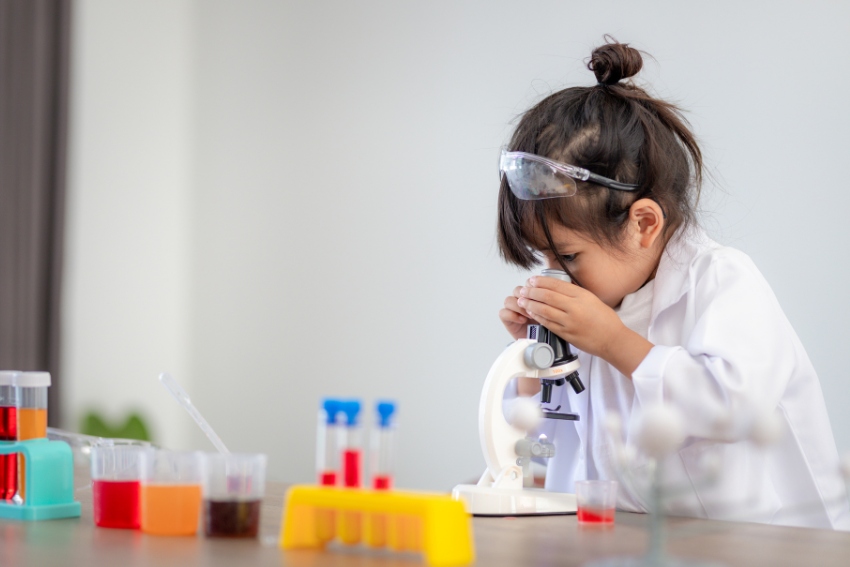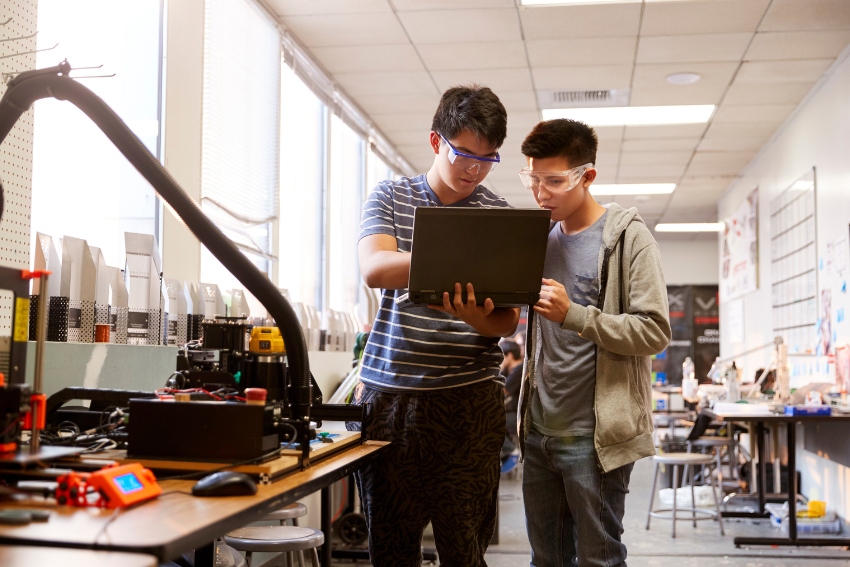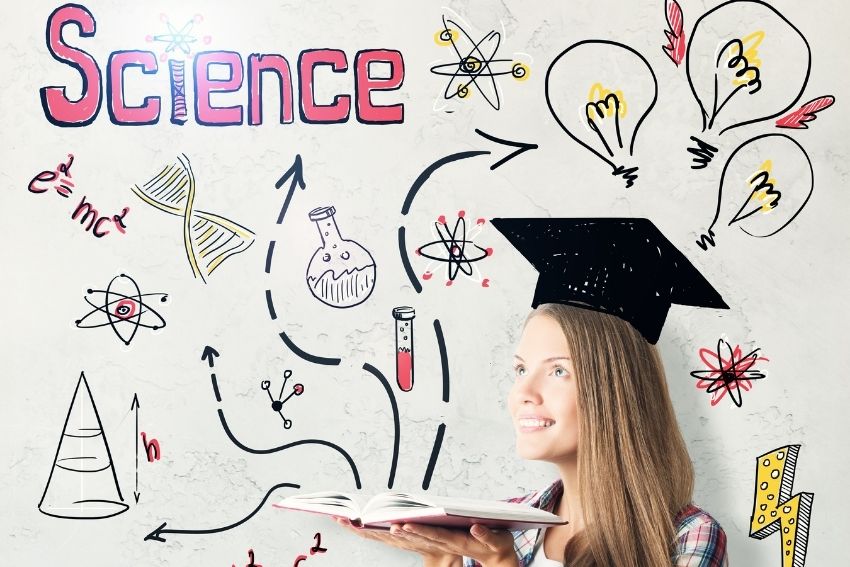Science education holds an indispensable role in moulding the innovators, explorers, and leaders of tomorrow. Fostering a child’s interest in the natural world and the workings of the universe paves the way for a lifelong curiosity, problem-solving abilities, and a deep-rooted understanding of the complex world we live in. This article serves as a comprehensive guide for parents navigating the labyrinth of Science education in the United Kingdom, breaking down each stage from the Early Years Foundation Stage (EYFS) through to A-Level studies.
Science education in England, stretching from primary to tertiary levels, is carefully regulated by a series of bodies. Below university level, the responsibility lies primarily with three entities: the Department for Education, Ofqual, and the QAA. These organisations ensure that the science curriculum across the country is standardised, rigorous, and encourages a deep and broad understanding of scientific concepts.
As parents, your role in encouraging and nurturing your child’s interest and comprehension of science can make a significant difference. By understanding the structure of Science education in the UK, you can better support your child’s scientific exploration. This guide breaks down the core concepts covered at each stage, provides actionable tips to help foster understanding and curiosity, and recommends a wealth of resources that you can tap into.
Early Years Foundation Stage (EYFS)

EYFS lays the groundwork for a child’s future understanding and love for science. It’s during this stage that the seeds of curiosity and wonder are planted. As such, parents play a crucial role in fostering their child’s interest in science from an early age.
Topics Covered in EYFS Science Education
Under EYFS, children are introduced to the world of science through exploration of their immediate environment. Science is not taught as a separate subject but is intertwined in various activities and areas of learning, such as ‘Understanding the World‘.
Children are encouraged to observe patterns, make comparisons, group objects based on characteristics, explore changes over time, and notice similarities and differences in the world around them. This includes simple aspects like exploring the texture of objects, observing weather changes, understanding the concept of growth, and more.
Actionable Tips for Parents
Supporting science education during the EYFS is all about fostering curiosity and providing opportunities for exploration and discovery.
Stimulate Curiosity
Regularly discuss the natural world with your child. Use walks in the park or the garden to talk about different plants, animals, or the weather. Encourage questions and help them explore answers.
Hands-On Learning
Engage in simple science experiments at home that are safe and suitable for young children. This could be as straightforward as mixing water and oil to observe the separation or growing a plant from seed to learn about life cycles.
Recommended Resources
Providing age-appropriate resources can make science interesting and fun for young learners.
Books
- “Science Play!” by Jill Frankel Hauser
- “The Curious Kid’s Science Book” by Asia Citro
TV Shows
- “Peppa Pig” – Episodes often involve exploring nature and simple scientific concepts.
- “Octonauts” – A fun way for kids to learn about different sea creatures and underwater life.
YouTube Channels
- “SciShow Kids” – Simplifies science concepts for young learners with fun and engaging videos.
- “National Geographic Kids” – Offers a range of educational videos on wildlife and natural phenomena.
Remember, the goal during the EYFS stage is not to teach complicated scientific concepts, but to encourage curiosity, observation, and the joy of discovery.
Key Stage 3 Science
As your child progresses into secondary education, the science curriculum under Key Stage 3 (KS3) becomes more structured and comprehensive. It aims to build on the foundational knowledge acquired during the primary years while sparking students’ interest in more complex scientific concepts.
Topics Covered in Key Stage 3 Science
Key Stage 3 science is divided into three main strands: Biology, Chemistry, and Physics. Each of these subjects covers a range of topics, with the overall goal of providing students a broad and solid foundation in science.
Biology
This includes studying cells, body systems, reproduction, health and lifestyle, ecosystem processes, and the interdependence of organisms.
Chemistry
Pupils learn about particle model of matter, atoms, elements, and compounds, pure and impure substances, chemical reactions, and Earth’s resources.
Physics
Topics covered include energy, motion and forces, waves, magnetism and electromagnetism, and space physics.
Actionable Tips for Parents
Navigating through Key Stage 3 science can be quite a leap for students. As parents, there are several ways to assist your child and make this transition smoother.
Reinforce Classroom Learning
Reinforce what is taught in the classroom by discussing the scientific concepts your child is currently learning about. This not only helps solidify their understanding but also encourages them to think critically and inquisitively.
Encourage Independent Learning
Promote independent learning by providing resources for self-study and exploration. This could include access to books, documentaries, or safe online platforms for learning.
Create a Conducive Learning Environment
Ensure that your child has a quiet, well-lit space to study and complete their homework. Encourage regular study habits and help them organise their study materials for better learning outcomes.
Recommended Resources
Books
- “KS3 Science Study Guide” by CGP Books
- “KS3 Science Complete Study & Practice” by CGP Books
TV Shows
- “Operation Ouch!” – An educational show about the human body and medical science.
- “Horrible Histories” – Although historically focused, the show often touches on scientific discoveries and inventions.
YouTube Channels
- “Free Science Lessons” – Offers short and engaging video lessons on a wide range of science topics.
- “FuseSchool – Global Education” – Provides animated learning videos on Biology, Chemistry, and Physics.
The goal during Key Stage 3 is to expand the scientific knowledge base of your child while fostering their ability to think scientifically. This will prepare them for the challenges of GCSE science in the coming years.
GCSE Science
The GCSE marks a critical point in a student’s science education. This stage deepens their understanding of the scientific world while also giving them the freedom to delve more into subjects that intrigue them the most.
What Does GCSE Science Contain?
GCSE Science typically encompasses Biology, Chemistry, and Physics. Schools usually offer two routes: Combined Science and Triple Science.
Combined Science
This pathway offers a broad and comprehensive understanding of the three science disciplines but in less depth than the Triple Science route. It leads to a double award, equivalent to two GCSEs.
Triple Science
This route involves studying Biology, Chemistry, and Physics as separate subjects, leading to three separate GCSEs. This path offers a more in-depth understanding of each discipline and is typically chosen by students who wish to pursue science at A-Level and beyond.
It’s important to note that students can’t take just one or two sciences at GCSE due to the way the curriculum is structured. The aim is to provide a broad and balanced scientific education.
Actionable Tips for Parents
GCSE science can be challenging, and parental support can greatly enhance a student’s performance and interest.
Assist with Effective Revision Techniques
Help your child create a revision timetable that includes ample time for breaks. Encourage active revision techniques such as summarising information, creating mind maps, or using flashcards.
Provide Past Papers for Practice
Practising with past papers can significantly improve a student’s performance. They help familiarise the student with the exam format, improve time management skills, and build confidence.
Engage in Discussions
Regularly discussing scientific concepts can help students retain information better. Try relating these concepts to real-life situations to make learning more engaging.
Recommended Resources
Books
- “GCSE Combined Science Revision Guide” by CGP Books
- “GCSE Biology, Chemistry and Physics Revision Guides” by CGP Books (for Triple Science)
TV Shows
- “Cosmos: A Spacetime Odyssey” – Presents science in a highly engaging manner, explaining complex scientific ideas through storytelling.
- “BBC Bitesize GCSE Science” – This series is specifically designed to match the GCSE syllabus, making it a valuable resource for revision.
YouTube Channels
- “Primrose Kitten” – Provides detailed GCSE science revision resources and study strategies.
- “Science With Hazel” – Offers comprehensive revision videos for GCSE and IGCSE science.
By nurturing an environment that supports learning and curiosity, you can help your child navigate through GCSE science confidently and successfully. This stage is not only about passing exams but also about fostering a long-lasting interest in science.
A-Level Sciences

A-level sciences represent the final stage of pre-university science education in the UK. This stage involves in-depth study and specialisation, offering students the opportunity to delve deeply into the scientific disciplines of their choice.
Topics Covered in A-Level Sciences
A-Level Sciences usually comprise three main subjects: Biology, Chemistry, and Physics. Each of these subjects delves deeply into various areas, providing students with an advanced understanding of each discipline.
Biology
Students learn about topics such as biological molecules, cells, how organisms exchange substances with their environment, genetics, populations, evolution, ecosystems, and the control of gene expression.
Chemistry
The curriculum covers physical chemistry (atomic structure, bonding, energetics, kinetics), inorganic chemistry (periodicity, Group 2 and 7 elements, transition metals, reactions of ions), and organic chemistry (including various functional groups, compounds, reactions, and analysis).
Physics
Physics students delve into measurements and their errors, particles and radiation, waves, mechanics and materials, electricity, further mechanics and thermal physics, fields and their consequences, and nuclear physics, with the option to study astrophysics, medical physics, engineering physics, turning points in physics, or electronics.
Actionable Tips for Parents
A-Levels represent a significant challenge, requiring deeper understanding and more independent study. Here’s how parents can support their children through A-Level Sciences.
Help Develop Effective Study Habits
At this stage, students need to manage their time effectively and prioritise their workload. Help them create a study schedule that includes breaks to rest and recharge.
Encourage Deeper Understanding
Understanding is key at this level. Encourage your child to go beyond rote learning and understand the underlying principles and concepts of the topics.
Support Their Choices
Whether your child is keen on science or not, support their decisions regarding subject choices and future education paths. Encourage their passion, but also help them understand the implications of their choices.
Recommended Resources
TV Shows
- “The Infinite Monkey Cage” – A comedic science podcast and BBC Radio 4 series that discusses various scientific topics.
- “Planet Earth” – A BBC nature documentary series that can supplement a student’s understanding of environmental biology.
YouTube Channels
- “SnapRevise A-Level Science” – Offers revision videos on A-Level Biology, Chemistry, and Physics.
- “Physics Online” – A valuable resource for A-Level Physics students, with videos covering the entire syllabus.
Through A-Level Sciences, students can truly deepen their understanding of scientific concepts, preparing them not just for university-level education, but for a lifetime of inquisitive thinking and exploration.
Conclusion
Navigating the landscape of science education in the UK, from the early foundational stages to the advanced A-Level studies, can feel like an arduous journey. Yet, it’s a journey rich in discovery, exploration, and growth, which can imbue your child with invaluable skills and knowledge. As we journey through the world of atoms and galaxies, cells and ecosystems, equations and theories, we not only understand our universe better, but we also develop key skills such as critical thinking, problem-solving, and a profound sense of curiosity.
Each stage of science education offers its unique set of challenges and rewards. And as your child progresses through these stages, they don’t just learn science; they learn to become scientists in their own right. They learn to question, to probe, to experiment, and to draw conclusions from their findings. This transformative process is what makes science education so essential and empowering.
The wonder of scientific discovery is that there’s always something new to learn, a fresh mystery to unravel, a novel idea to grasp. But sometimes, that journey can be challenging, and a guiding hand can make a world of difference. If your child ever needs that extra bit of help, there are resources readily available.
Science tutors are instrumental in helping students achieve greatness in subjects like Chemistry, Physics, and Biology. One of these resources is Edumentors, set up to help students through online tutoring on some big decisions in their academic journey. With tutors at the top UK universities, Edumentors has a personalized approach to tutoring geared toward equipping students with the intended results. These tutors have navigated the academic path, so they are more than willing to share their tested strategies and knowledge to inspire confidence in others. Whether it is GCSE Physics or A-Level Biology, an Edumentors tutor can give extra support to your child who might want to achieve their goals.








